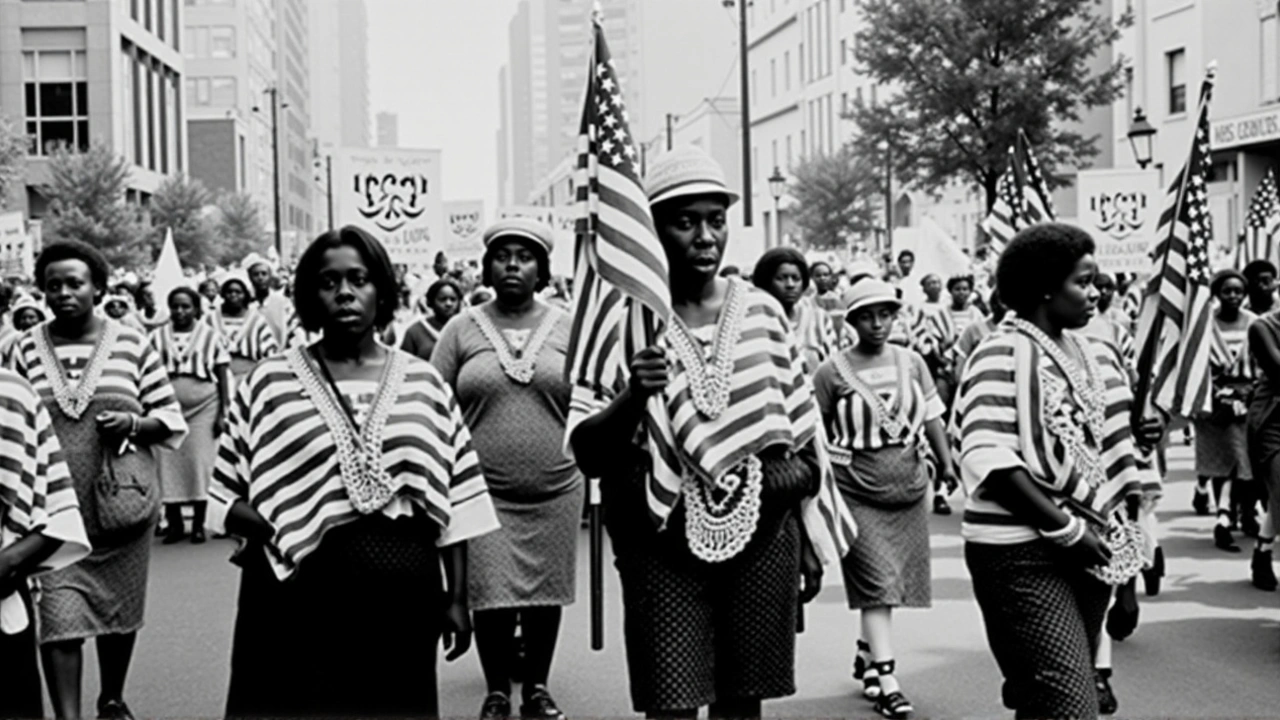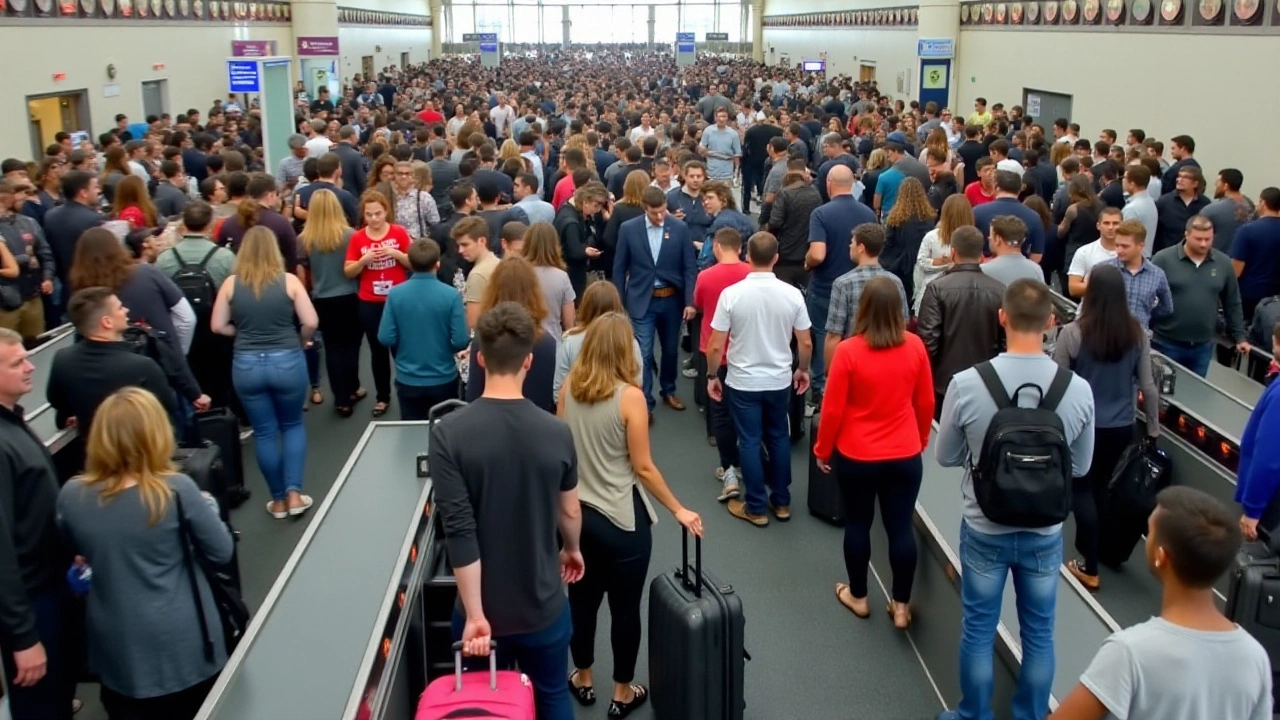The Importance of Labor Day: Honoring America's Dedicated Workforce

The Origins and Significance of Labor Day
Labor Day, observed on the first Monday of September, is more than just a day off from work. For over a century, this holiday has stood as a sentinel, reminding us of the hard work and dedication that form the backbone of the American economy. From its inception in the late 19th century, Labor Day was designed to honor the countless contributions and sacrifices made by American workers. These contributions have been instrumental in shaping the country's progress, development, and culture.
The roots of Labor Day can be traced back to the labor movement, which emerged amid the Industrial Revolution. During this time, workers were subjected to grueling work hours, unsafe conditions, and minimal pay. Labor unions sprang up as a response, advocating for better working conditions, fair wages, and reasonable hours. The idea of Labor Day was proposed to publicize these causes and celebrate the achievements of laborers. The first Labor Day parade was held in New York City on September 5, 1882, organized by the Central Labor Union. This event was so successful that it spurred the spread of Labor Day celebrations across the country, ultimately becoming a national holiday in 1894.
Today, Labor Day is much more than a relic of the past. It serves as a vital reminder of the ongoing struggles and triumphs within the American workforce. This day is not only a time to honor those who fought for labor rights but also an opportunity to reflect on current labor issues and consider how much more still needs to be done. It is a moment to advocate for fair wages, safe working conditions, and equitable opportunities for all workers, regardless of their field or background.
The Modern Celebration of Labor Day
In contemporary times, Labor Day is synonymous with relaxation and spending quality time with loved ones. For many, it marks the unofficial end of summer, a final opportunity to bask in the sun before the fall season ushers in cooler weather. Barbecues, parades, and family gatherings are common ways to celebrate, providing a well-deserved break from the daily grind. The spirit of community and togetherness is palpable, reminding us of the collective strength that workers share.
Despite its focus on celebration, Labor Day is also a time for introspection. It prompts us to consider the value of work and the fundamental rights of workers that many often take for granted. The historical context of the holiday brings to light the significance of labor rights and the ongoing need to protect and expand these rights in today's evolving work landscape. From advocating for gender equality in the workplace to ensuring that gig economy workers have access to benefits, the essence of Labor Day is rooted in fairness and justice for all workers.

The Impact of Labor Day on Families
For families, Labor Day offers a unique opportunity to connect and create lasting memories. Parents, often busy with demanding jobs, can use this time to bond with their children and reflect on the importance of their work. This break allows them to shed the stress of everyday life and focus on what truly matters—family, health, and happiness. The significance of taking a break cannot be understated in a fast-paced world where downtime is often elusive.
Spending quality time with loved ones is one of the core values that Labor Day promotes. Whether through simple activities like a picnic in the park or more elaborate affairs like a family reunion, the holiday encourages people to prioritize their personal lives alongside their professional responsibilities. This balance is essential for mental and emotional well-being, fostering a healthier and more productive society.
Children, too, benefit from the lessons that Labor Day imparts. Learning about the history of the labor movement and the importance of hard work instills values of perseverance, resilience, and appreciation. These lessons are crucial for shaping future generations who will eventually enter the workforce and continue the legacy of American labor.
Labor Day’s Broader Implications
The influence of Labor Day extends far beyond a single day of rest and recreation. It serves as a symbolic reminder of the ongoing evolution of labor rights and the continuous battle for better working conditions. In an era marked by rapid technological advancements and changing economic landscapes, the principles that Labor Day embodies are more relevant than ever. From discussions on sustainable work-life balance to debates on remote work and the protection of gig workers, the conversation around labor rights is evolving.
Moreover, Labor Day encourages employers to recognize the importance of their workforce. Acknowledging the efforts of employees is not only a moral obligation but also a practical necessity for any successful organization. Happy and satisfied workers are more likely to be productive, loyal, and innovative, driving the success of their companies.

Conclusion: Embracing the Spirit of Labor Day
As we celebrate Labor Day, it is crucial to remember the historical struggles that have shaped the labor landscape and to appreciate the ongoing efforts to improve working conditions for all. This holiday is a time to honor the tireless dedication and perseverance of American workers, who have been and continue to be the driving force behind the nation's growth and success. By embracing the true spirit of Labor Day, we can ensure that the contributions of workers are recognized, appreciated, and celebrated, not just on this day, but every day.
When we look back at the origins of Labor Day, it's clear that the fight for reasonable hours and safe workplaces was about dignity as much as economics. The early unions understood that a worker's worth can't be measured solely by output, and that principle still resonates today. Modern gig workers, for instance, face similar battles over benefits and protections, showing the continuity of the struggle. Recognizing this lineage helps us appreciate why we still need to advocate for fair wages and safe conditions. It's not just a holiday; it's a reminder that progress requires vigilance.
The history of those early parades in New York actually set a template for many cities to follow. Local chambers of commerce still partner with unions to organize community events that celebrate workers. If you’re looking for ways to get involved, checking your city’s labor council website can point you to volunteer opportunities or educational workshops. Simple actions like sharing a story about a coworker’s dedication on social media also keep the spirit alive.
Love how Labor Day brings families together and reminds us to value hard work
Totally agree! It's awesome how we can take a break and still think about teh history behind it. The kids get to learn about the union fights while enjoying a BBQ. Plus, many parks host free concerts that celebrate the community vibe. Sharing these moments helps keep the story alive for future generations.
Labor Day's public face hides a deeper agenda that many choose to ignore. The holiday was born out of genuine worker unrest, yet over the decades powerful interests have co‑opted it to pacify the masses. By giving workers a single day off, corporations subtly suggest that occasional leisure is enough compensation for years of exploitation. Behind the fireworks and barbecues, there are lobbying groups that push legislation limiting overtime pay under the guise of protecting small businesses. These groups fund think‑tanks that flood the media with stories about “overworking” the American spirit. Meanwhile, the gig economy expands unchecked, and the same workers who once fought for the eight‑hour day now scramble for algorithmic gigs with no benefits. The narrative that Labor Day is merely a celebration distracts from the ongoing erosion of collective bargaining rights. In many states, right‑to‑work laws weaken unions, and the public rarely notices because the holiday provides a convenient smokescreen. Historical documents reveal that early Labor Day organizers warned against such co‑optation, urging vigilance. Each parade banner, each patriotic song, can be repurposed to reinforce loyalty to a system that still profits from labor. The media’s silence on these issues is a testament to how deeply the narrative has been ingrained. When we watch a football game on Labor Day, we are unwittingly supporting advertisers that influence policy behind closed doors. The true labor struggle continues in courtrooms, in city council meetings, and on factory floors where safety standards are still debated. Keeping the memory of past sacrifices alive means questioning the comfortable narratives that surface every September. Only by exposing these hidden mechanisms can we honor the original spirit of workers' solidarity.